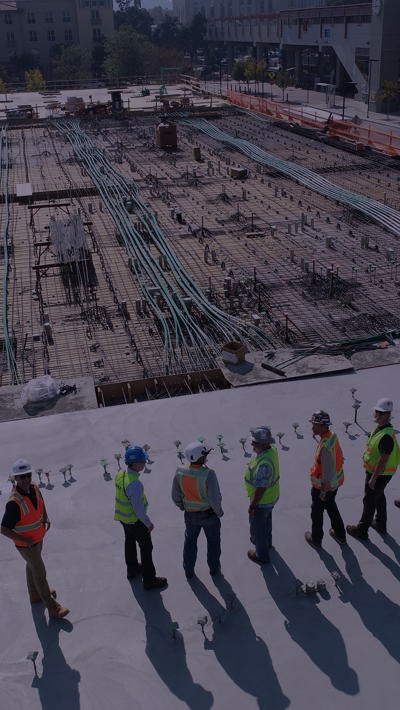Contents
Rau Paenga Limited (RPL), the Crown infrastructure delivery entity, scored a significant win in the High Court last week, restraining construction company CPB from suspending or terminating the contract for the troubled Parakiore Recreation and Sports Centre in Christchurch.
The High Court’s judgment provides guidance on the termination regime in the NZS 3910 standard form contract, and illustrates how termination can be restrained while the parties move through the contract’s dispute resolution procedure.
Background
In 2019, RPL engaged CPB to complete construction of the Parakiore Recreation and Sports Centre under a NZS 3910 construction contract. The project is now years late and hundreds of millions of dollars over budget, with each party blaming the other.
On 4 September 2023, CPB issued three default notices under clause 14.3.1(f), notifying RPL that it was “persistently, flagrantly, or wilfully neglecting to carry out its obligations under the Contract”, and had 10 Working Days to address its defaults before CPB would suspend or terminate the contract.
RPL disputed the validity of the default notices, commencing the dispute resolution process in clause 13 of the contract. RPL also sought interim orders from the High Court restraining CPB from suspending or terminating the contract pending final determination of the dispute.
CPB opposed the interim orders sought. CPB maintained that the relationship between the parties had entirely broken down and it should be entitled to suspend or terminate the contract. If the termination was subsequently found to be invalid, RPL could be compensated for any increased costs to complete by an award of damages.
The practical implications of granting the orders sought are that CPB would be required to complete the project despite having a right to terminate – because the works would be completed before final determination of the dispute.
The decision
The High Court granted the interim orders sought by RPL on the following grounds.
- The relationship between the termination provisions in clause 14 and the dispute resolution provisions in clause 13 of NZS 3910 indicate that disputes regarding default notices issued under clause 14.3 should be resolved before a party can exercise their right to termination.
- The bar for termination under NZS 3910 is “deliberately set high” and is reserved for “extreme” defaults.
- CPB’s default notices were arguably invalid. Clause 14.3 contemplates defaults that are capable of being remedied. CPB’s default notices state that RPL’s defaults cannot be remedied simply by performance, but rather demanded sums that have not yet been certified as payable under the contract. In addition, there was a legitimate dispute about whether RPL was in breach of its obligations under the contract.
- CPB’s argument that it was entitled to terminate because RPL had repudiated (i.e. walked away from) the contract was difficult, because RPL had confirmed it would follow the dispute resolution process and sought to maintain the contract.
- If CPB terminated the contract, and it was subsequently determined that CPB’s termination was invalid, the loss to RPL would be significant and difficult to quantify. RPL would need to engage an alternative contractor who would charge a premium and not warrant CPB’s work, and there would be a range of costs associated with delay, and there may be harm to third parties. RPL’s loss could not be adequately compensated for by an award of damages.
- The dispute in relation to the validity of CPB’s dispute notices should be able to be determined “within months”. The High Court did not agree with CPB’s suggestion that arbitration proceedings would not be concluded for two to three years.
Chapman Tripp comment
This decision emphasises that where there is a genuine dispute over a party’s entitlement to suspend or terminate a construction contract, the Court may issue orders that the contractual dispute resolution processes be followed before the purported suspension or termination can be given effect to.
This can be the case even where the relationship between the parties has broken down, and the practical effect of the order will be to require the contractor to complete the project.
We expect the decision to be controversial. Principals will appreciate the High Court’s recognition of the serious consequences of early termination. Contractors, however, may argue that the decision imposes a significant limitation on their ability to exercise termination rights.
The judgment is likely to be appealed.
Our thanks to Andrew Smylie for his assistance in preparing this article.













































































































